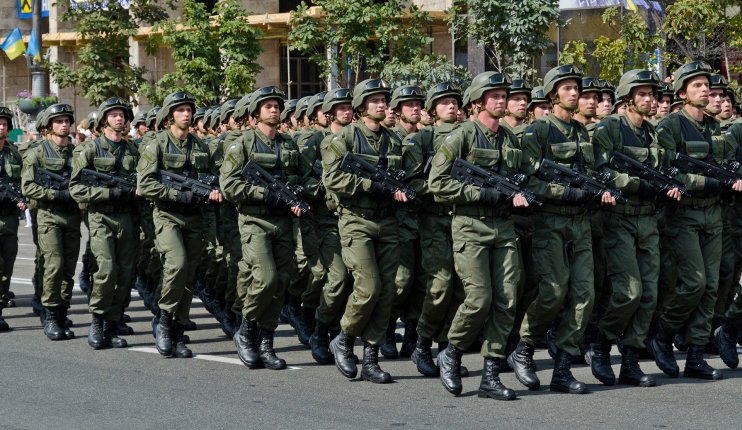The cryptocurrency fundraisers behind Ukraine’s military effort

Ukraine’s bitter stand-off with Russia is being part-funded by cryptocurrency donations, according to research by a blockchain analytics and data specialist.
Experts within London-based Elliptic – one of the world’s most well-known providers of blockchain analytics for cryptoasset compliance – discovered crypto wallets that received more than half a million dollars of donations to help Ukraine’s military effort.
The region is no stranger to crowdfunding in the shadow of border tensions with Moscow. Funds have been regularly raised since the Maidan Revolution, which led to the ousting of pro-Russia President Viktor Yanukovych in 2014.
Soon after, volunteer organisations emerged to support the protesters and assist the wounded.
However, as the threat of all-out conflict escalated recently, so did the level of fundraising. In 2021, cryptocurrency donations to several non-government military support groups rocketed by more than 900 per cent.
“Elliptic has identified several cryptocurrency wallets used by these volunteer groups and NGOs, which have collectively received funds totalling just over $570,000 – much of it over the past year,” says the platform’s research.
One of Ukraine’s original support groups – ‘Come Back Alive’, named after inscriptions on body armour supplied to the nation’s forces – makes up more than a third of the known funds. According to Elliptic, Come Back Alive now provides a range of military equipment, training services and medical supplies. It even funded the development of a drone-based reconnaissance and targeting system for Ukrainian artillery units.
READ MORE: Two charged in connection with £3.8bn hack of crypto exchange Bitfinex
Formed in 2014, the organisation began accepting crypto assets four years ago. In 2021, its digital wallet received $200,000, mainly in Bitcoin.
The movement isn’t restricted to purchasing medical supplies and military equipment – some groups are taking more direct action.
The Ukrainian Cyber Alliance, for instance, is a collective of activists who have engaged in cyberattacks against Russian targets since 2016. The group’s operations have reportedly included attacks on propaganda websites, the Russian Ministry of Defence and various individuals linked to Russia’s activities in Ukraine. Intelligence collected during these operations is apparently shared with Ukrainian agencies.
Another group – the ‘Myrotvorets Center’ – publishes personal information about individuals considered to be “enemies of Ukraine”.
Elliptic’ s chief scientist and co-founder Tom Robinson explained that censorship-resistant cryptocurrency appealed to the Ukrainian groups, as “there’s no chance they’re going to get their funds seized or their account shut down, like might happen with PayPal”.
“It’s proved itself to be a robust way to fund wars,” he added.